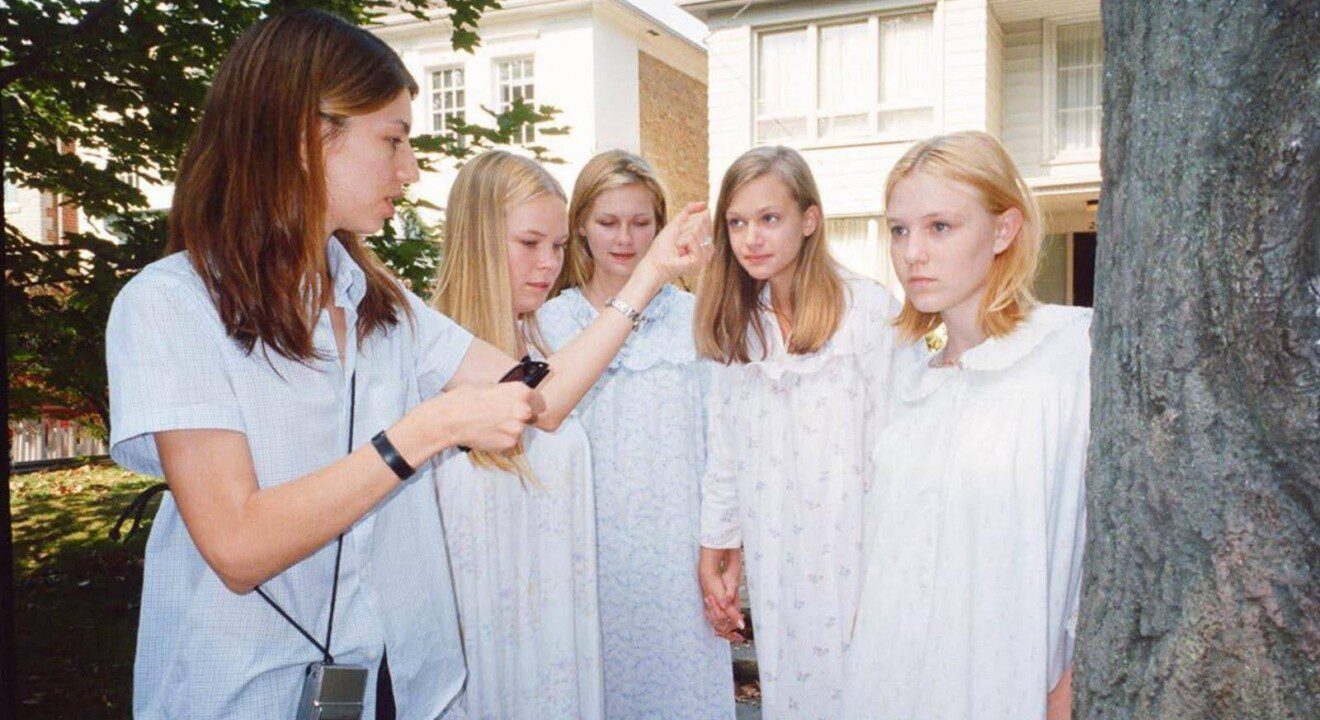Culture May 23, 2024


When I first watched The Virgin Suicides, I decided to change everything I had mapped out for my future. I knew then and there that I wanted to direct, I wanted to write, and there would no longer be any other option. It was one of the first movies where I felt darkly understood, and I couldn’t wrap my mind around how that could be possible. I was 18 years old, and after much convincing by my parents I reluctantly agreed to watch the film; they insisted I would love it and within the first 20 seconds I was completely hooked. The ominous Air soundtrack grew and swelled beneath the pink-hazed scenes, and I could barely breathe, each one of the Lisbon girls reminding me of locked away pieces of my 13-year-old self that I had restrained. As the loving but warning tune “Highschool Lover” rang through the room, I knew that the girls and the pain painted across the screen would not be a moment I could ever escape from. As the life of the girls swirled by and the movie finally came to a halt tears beat down my face when I read: written and directed by Sofia Coppola.
The film rang repeatedly in my head, and I obsessively read over everything I could find on the movie and Sofia Coppola. I became familiar with all of Sofia’s works, her photography, her life, her daughters, her ideas, and her dreams. I read every interview, article, and film that her name was featured in, and I began to fall deeper and deeper into a hole that I still have not removed myself from. Sofia didn’t connect or relate to the characters and films made for young women and people at the time, but when she first read The Virgin Suicides she felt as connected to the story as I felt connected to her film. The film ignited a burning flame in my chest, it was different than any movie I had seen before, and it brought to life the hellish feelings of teenage girls that were all too familiar to me. The long blonde hair and twisted story of the Lisbon girls’ suicides mystified her but imprisoned her heart the same way it did mine, and her time spent doing photography and writing when she was younger aided her in magnifying their visually graceful yet feminine darkness. The Lisbon girls’ suicides shocked everyone, and as the world searched for answers on why such young and promising girls wanted to end their lives, I immediately understood. The sisters were lusted over, all the boys around them waited for their turn to conquer each of the girls and their untouchable innocence even though they suffered in silence after the first death of their sister. The Lisbon girl’s’ death made them forever out of reach from those who loved them but never tried to understand them, and Sofia made the mysterious pain of the girls apparent on the screen. Although Sofia operated on a scrappy budget and 27 days of shooting, she crafted a film that people will watch and dream about for years to come. Sofia brings a delicate and female touch to a world of film that I had seldom seen, using her writing and directing to pull at the heartstrings of girls who lived a dream on the outside and a nightmare within.
I was a difficult girl with difficult dreams, walking through the world aimless and unfocused until I began to absorb myself into movies graced by Sofia’s touch. Every part of her work entranced me, every aspect of her refined vision centered around girlhood attracted me and I slowly fell deeper in love with the way she effortlessly painted life and heartache across a movie screen. I came to better understand the world through her films, and as I made my way through every one of her films, I felt an understanding of the tormented facade I put up for years. Sofia understood the lingering depression that wavered in the minds of misunderstood young girls who felt wronged by the world, and from the connection to her actors, her stunning and intimate writing, and finally her dream-like directorial skills, Sofia brought life to the screen that was purely woman. She understood the traumatizing nostalgia of being a 13-year-old girl, understood the Lisbon girls, and understood the fragility of growing up as a woman in a society that didn’t look after us. When I reflect on the impact Sofia Coppola had on my life and my career, it’s no longer just about a single film but about how she unknowingly helped me understand myself and shape me into the writer and woman I proudly am today.
About Eva Solis Lindholm: Eva Solis Lindholm is a film and media studies student at UC Santa Barbara from the beautiful city of LA. She has done acting and writing for the majority of her life and aspires to direct and write her first short film this year. This is Eva’s second time participating in Stories Matter and has loved working on advancing as a writer and meeting fellow aspiring writers and artists. She can’t wait for everyone to read her story about her favorite director and inspiration, Sofia Coppola, and is honored to be published in ENTITY Mag for a second time. Hope you enjoy!

About Stories Matter: Stories Matter, a mentoring program for young female writers founded by ENTITY Mentor and writer Leslie Zemeckis, nurtures the next generation and inspires them to tell their stories. Co-sponsored by the Santa Barbara International Film Festival (SBIFF) and ENTITY Mag, published female authors give their time to emerging talent to encourage greatness and share their writing process. “The recent group, whose assignment was to write about ‘A Woman You Should Know,’” noted Leslie, “was exceptionally talented and a joy to work with.” ENTITY Mag is thrilled to showcase the work of these gifted young writers.